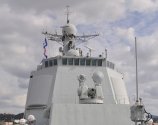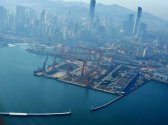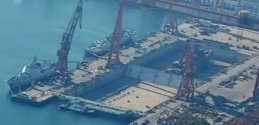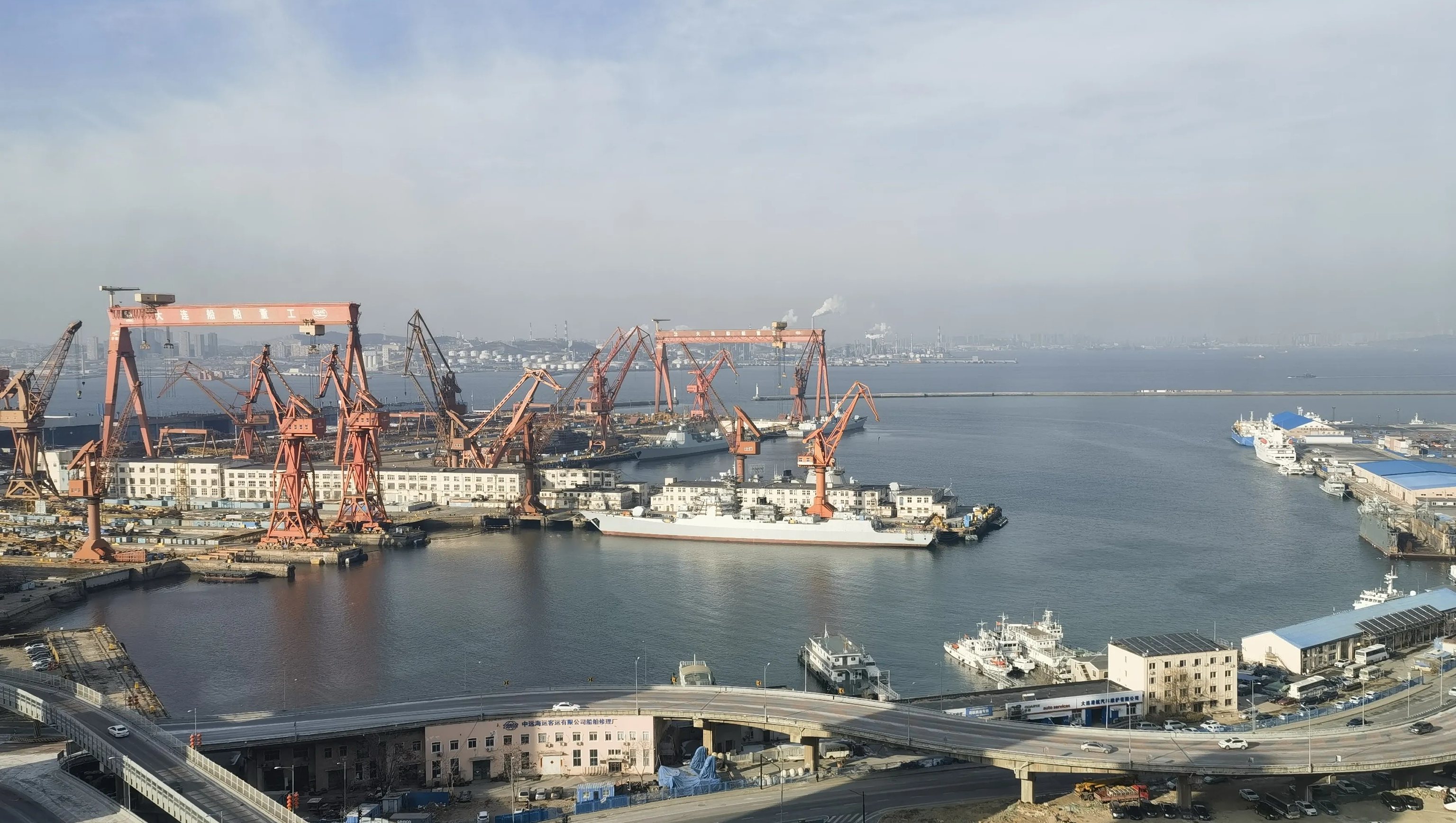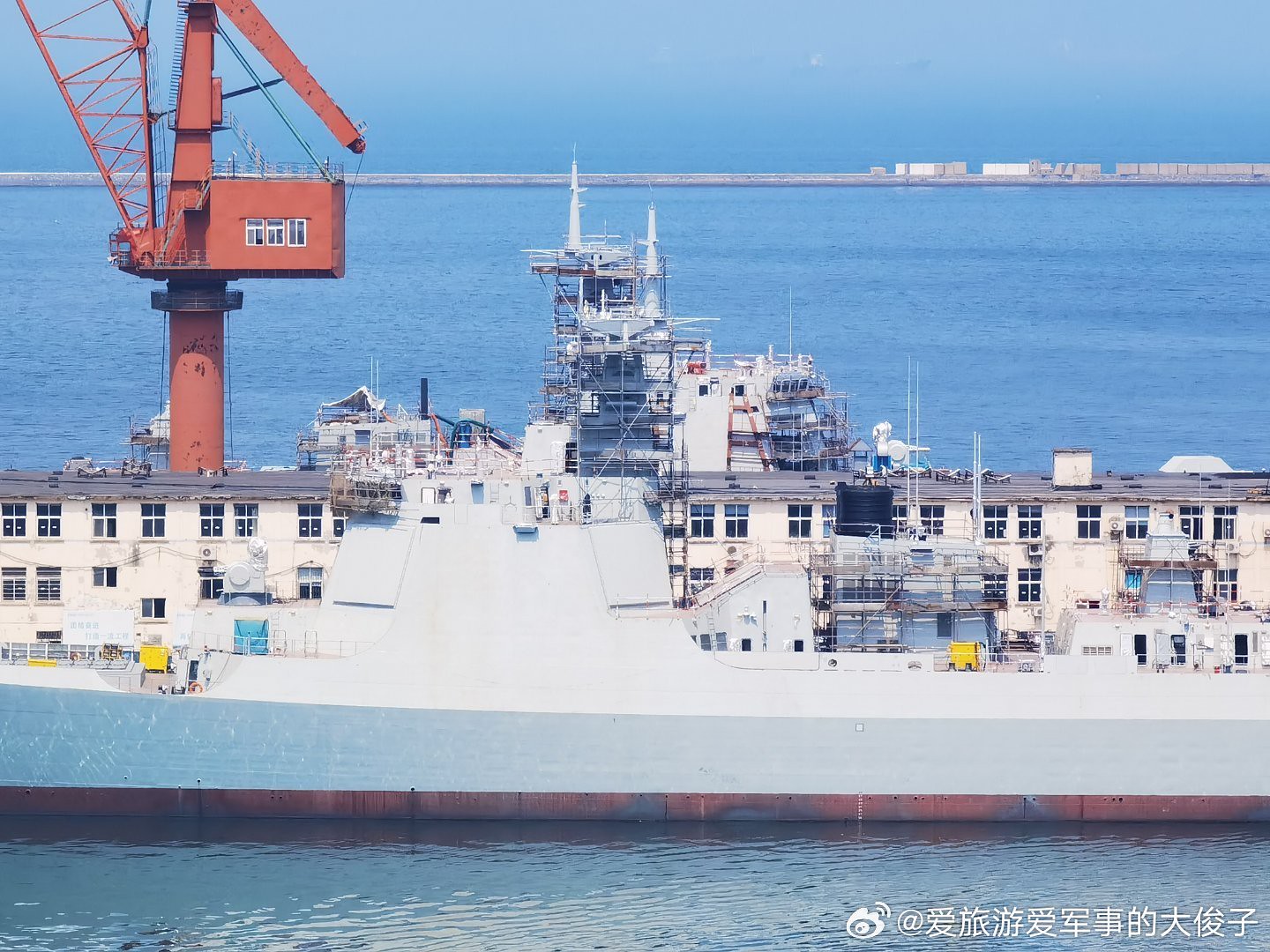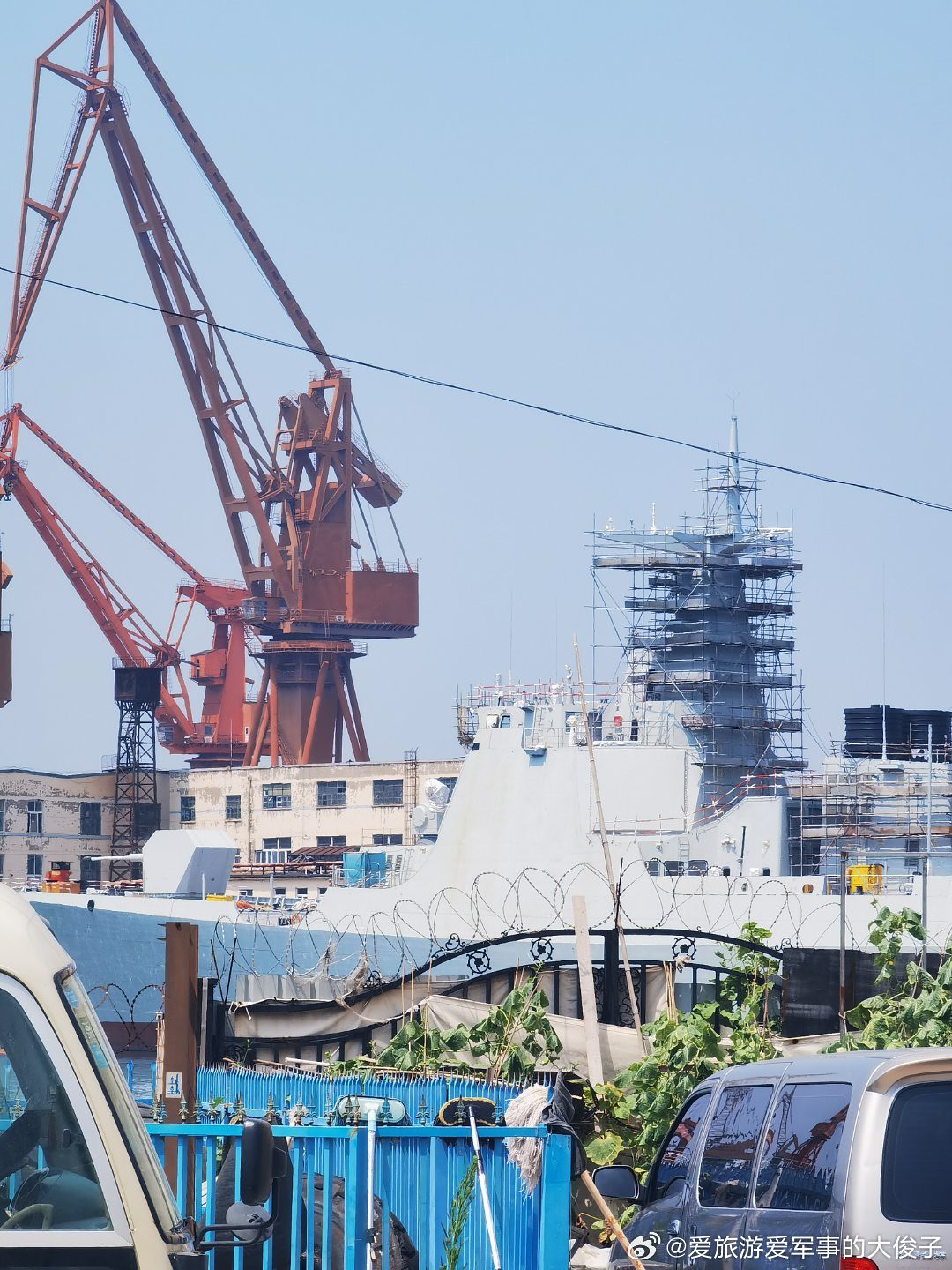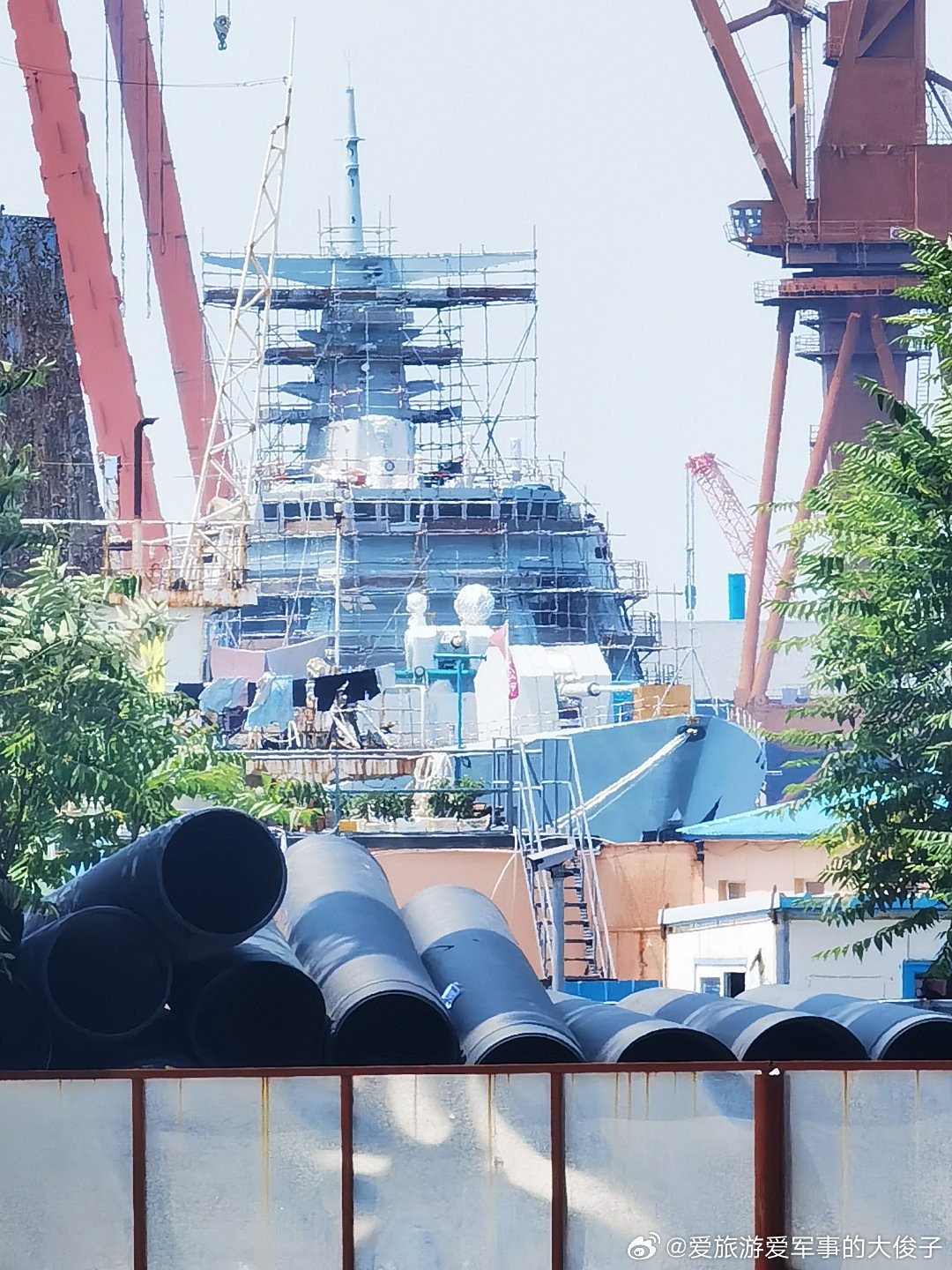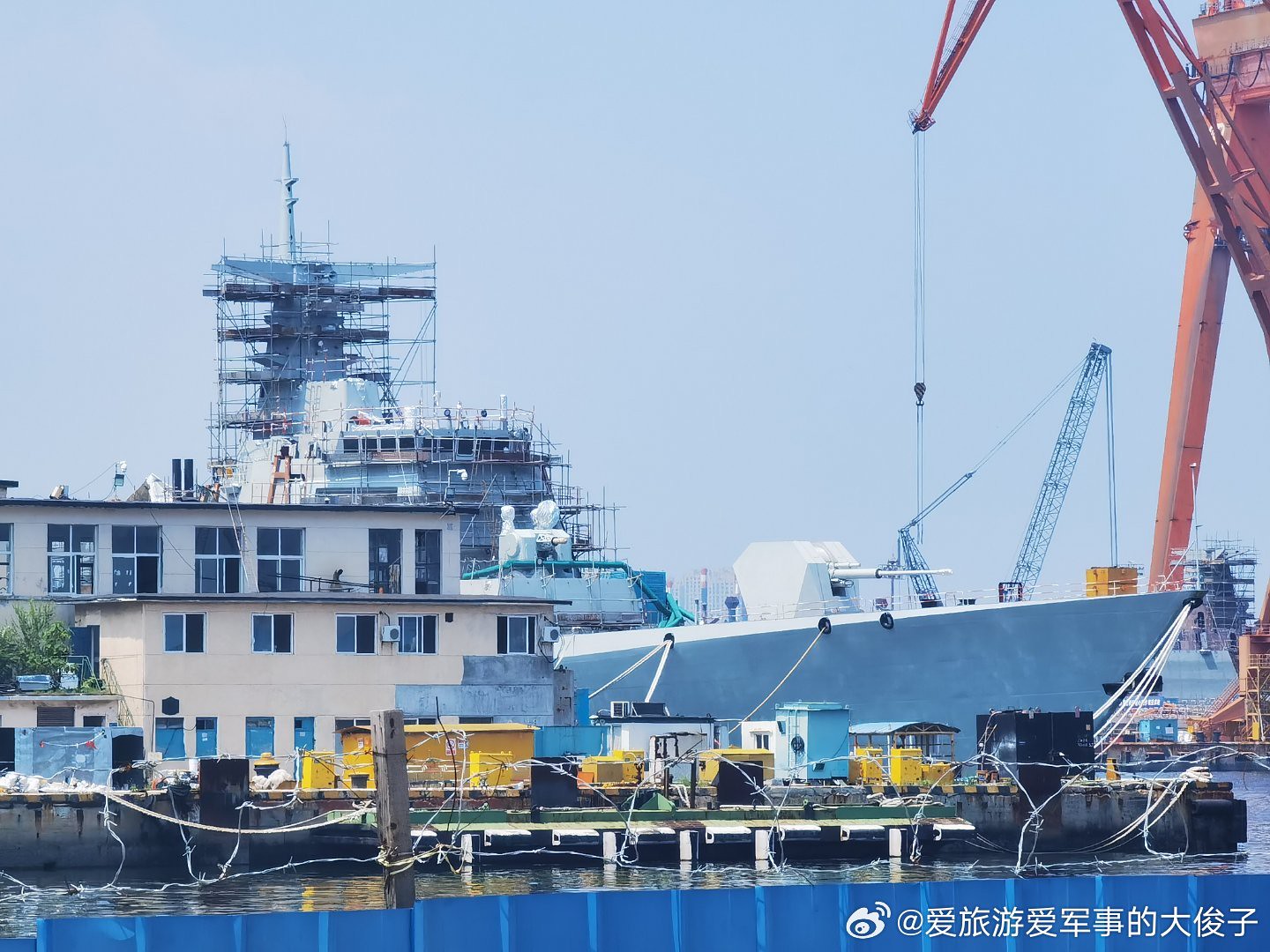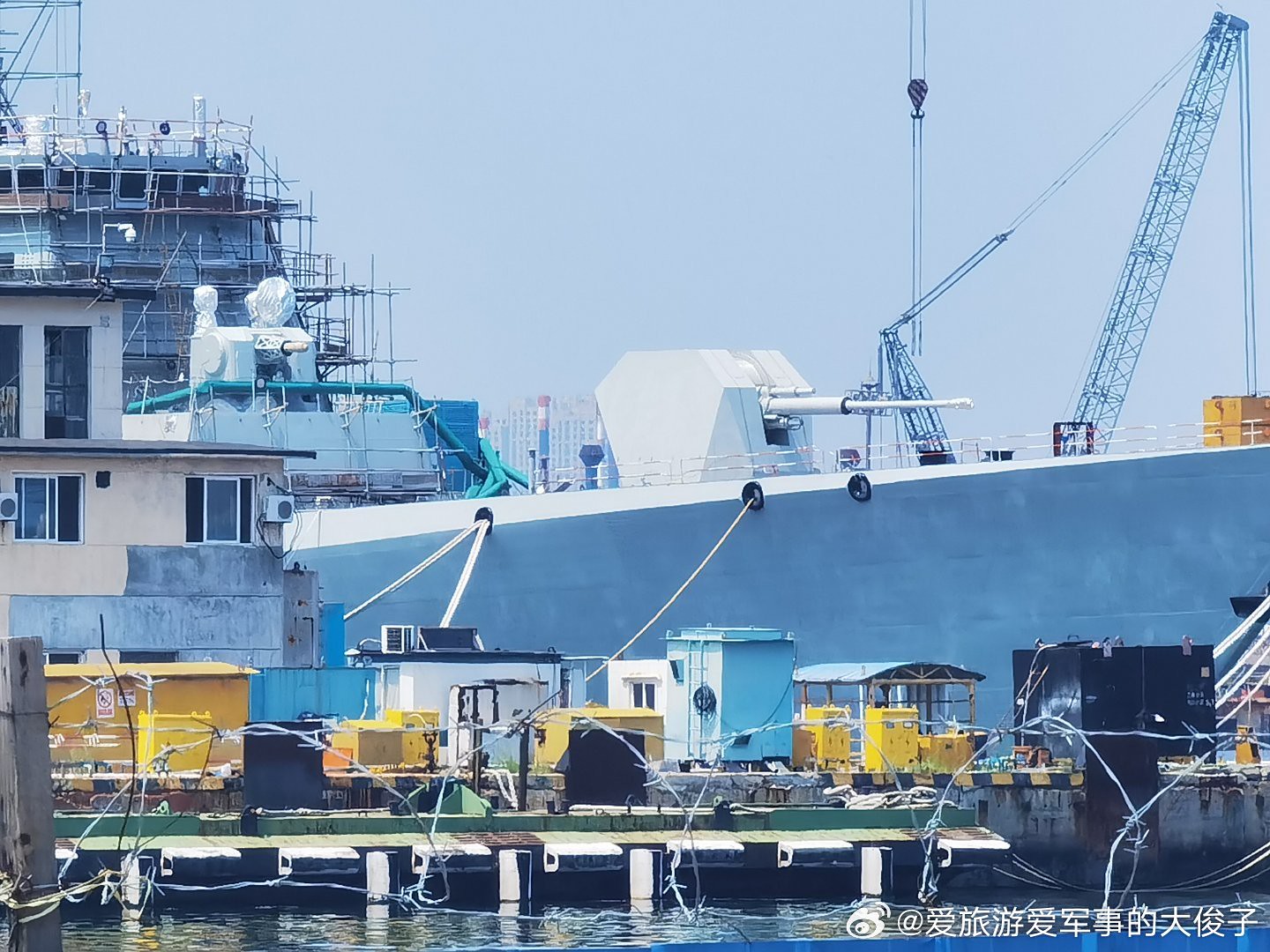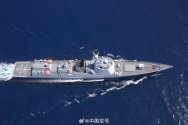You are using an out of date browser. It may not display this or other websites correctly.
You should upgrade or use an alternative browser.
You should upgrade or use an alternative browser.
052C/052D Class Destroyers
- Thread starter Jeff Head
- Start date
What's the difference between the top radar and the AESA cheek radar? Is the top for surface targets? Why do a surface radar need 3D?
View attachment 124868
The height gives better radar horizon, allows radar to peep down the Earth curvature to detect sea skimming antiship missiles. A lower mounted radar would have a more difficult time in detecting these missiles in advanced. Once these missiles reached a low altitude, the earth curvature would hide them from the main radar.
A 3D radar would give a more precise altitude measurement of the target and it can act as a secondary radar tracking higher flying targets. Also being an AESA, with electronic scanning, it would have a higher and much faster scan rate over the mechanical radar.
In addition, the second radar has a much higher frequency bank that gives better resistance against sea clutter, namely unwanted echoes from the water surface that distracts from the real targets.
The US does a similar thing by installing SPQ-9B radar on top of AEGIS destroyer masts where previously it does not, and you have examples in the Russian Navy where the Pozitiv radar are mounted on a height, such as the Admiral Grigorovich frigates. The last two Sovremenny sold to the PLAN are also equipped with Pozitiv radar on a height, as per PLAN specification, while the first two did not. In the refit of the first two, the Type 364 was added to both.
drunkmunky
Junior Member
crazy.... the C looks so old now compared to the DL & 55
lcloo
Major
The first type 052C was laid down in 2002 and commissioned in 2004. They are indeed showing their age. There are a lot of technology advancement during the last 20 years for PLAN.crazy.... the C looks so old now compared to the DL & 55
We've had visual confirmation of another 052D, 175 Yinchuan I think, which was seen in 2020 with those tubes. They are likely for launching inflatable decoys.
Seems like they are gradually proliferating them across other 052Ds.
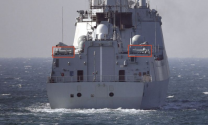
We've had visual confirmation of another 052D, 175 Yinchuan I think, which was seen in 2020 with those tubes. They are likely for launching inflatable decoys.
Seems like they are gradually proliferating them across other 052Ds.
View attachment 126054
Yet another possible "new" decoy type? For evaluations / comparison?
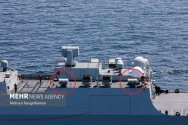
From:

